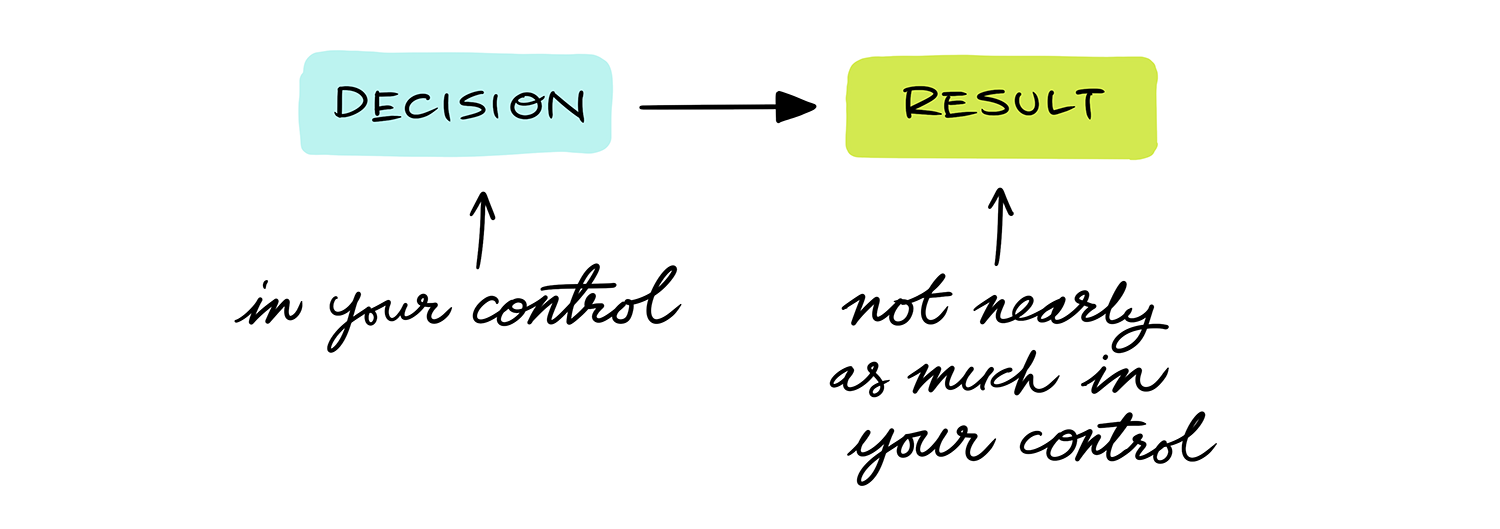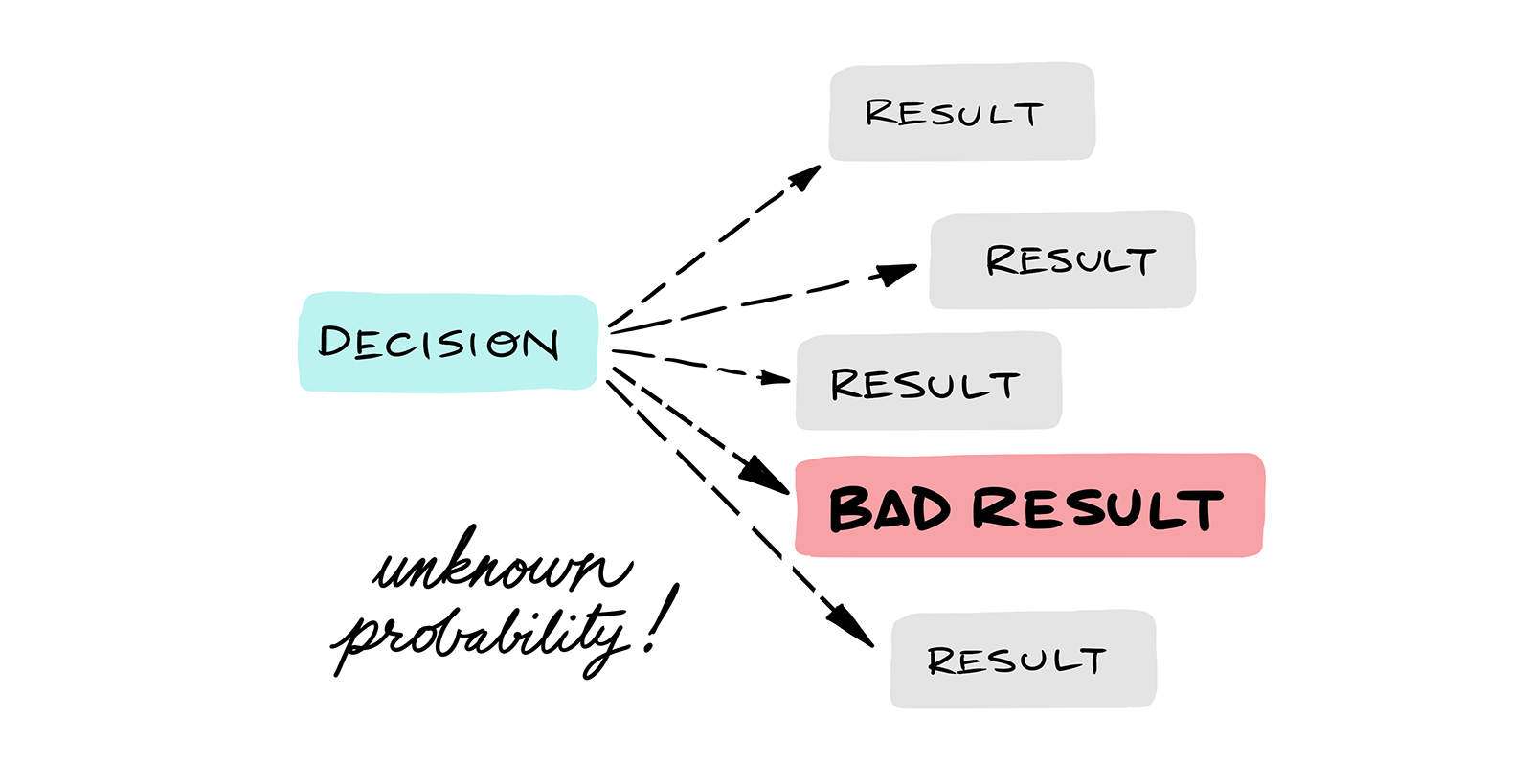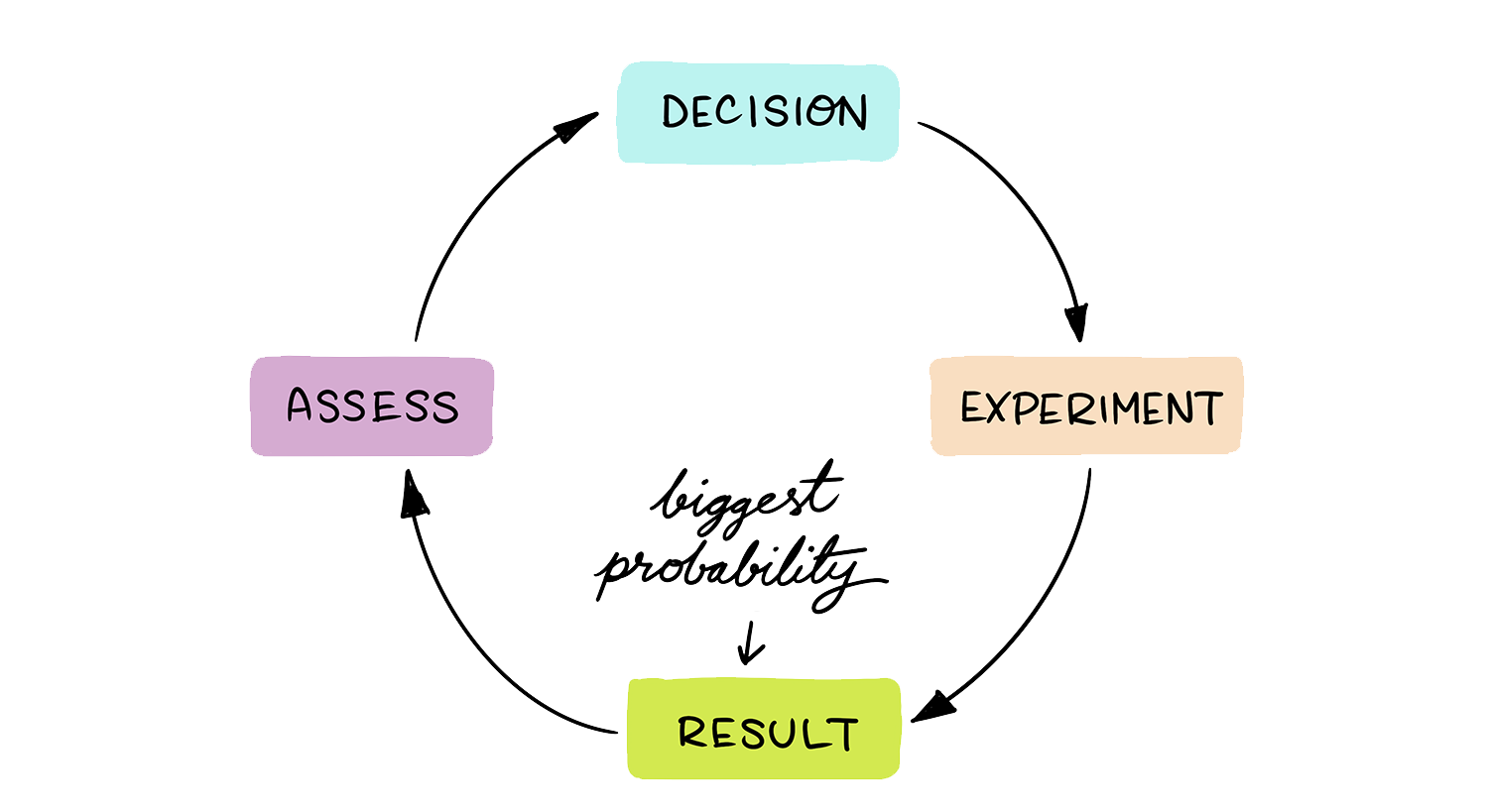Here's a quick thought experiment for you. What magical item would help you make decisions faster?
This can be an interesting question to ask a group at the start of a meeting or workshop where they have to make an important decision. It helps get everybody in the right mindset, but it also reveals to you (and to themselves), what might be holding them back from making a decision toward the end of your meeting.
I've asked this question many times, and it's always insightful. Curious about the number one answer? Read to the end. ;)
We crave certainty. A lot.
Many meetings end up with no decision made, because groups find it really hard to align, let alone commit. Rather than go with consensus, we "take it offline' (whatever that means), and leave it to a few people to work out afterwards, or we punt it to the next meeting, and hope that the decision can be made next time.
A big reason for this is craving certainty when little or none is there. We can't help it. We want to be as sure as we can about the result of a decision, before we make the decision. More information. More proof. More time. More discussion. Then we can see the result, and feel good about ourselves.

One of the biggest lessons in Annie Duke's cracking book Thinking in Bets (affiliate link included) is to separate a decision from the result in your mind. Don't judge each decision you make (and therefore yourself) based on the results of each decision. You can make a great decision that can still lead to a poor result. Why? Because there's so much that is out of your control.
As Annie (a veteran award-winning poker player) says, the outcome is always going to be a mix of skill and luck. You can control the skill part, you can mitigate risk, but there's always a lot that is just out of your hands.
We are blinded by extreme cases
Another big factor that can hold groups back from making decisions is assuming an extreme case (often an imagined unfavourable result) will happen, blinding them to other, more realistic cases. In other words, we tend to fixate on the worst thing that could happen (based on biases and assumptions), and then let that fixation crowd out any speculation of other possible results.

This is what's going on when you hear remarks like:
- "We tried that before, it won't work"
- "Geoff will never go for that"
- "The Interductive Flugnatory Department won't have capacity to do that"
Use verbal experiments to help give certainty and open up thinking to other possible results
We can help our groups deal with these issues by running verbal experiments. Verbal experiments - like any experiment - help groups to frame a possible decision as a hypothesis to be validated, and then use the results to inform their decision. They help groups appreciate that any decision is a bet, where they are betting that their favoured result will happen with higher probability than other results.
Seeing results of these verbal experiments might also open up their thinking to more possible ideas and results, other than the one they are fixating on.
Verbal experiments use questions to help your group "try on' a decision before "buying it'.

When most people hear EXPERIMENT, they think of long expensive technical tests and so forth. But verbal experiments are quick and free, because all you're doing is posing insightful questions. Verbal experiments use questions to help your group "try on' a decision before "buying it'.
Examples of verbal experiments
Here are some types of verbal experiments to think about using in your meetings:
Scenario modelling - applying a possible decision to different kinds of scenarios that might happen. Examples of this in action:
- "Let's try out this option as a thought experiment: what would happen straight after we chose this option? A month from now? A year?"
- "Some of us aren't sure about committing to this decision. Maybe this will help. Say we put the Interductive Flugnatory Team onto this. What would we need to see from them, to know it'll work out OK?"
What if analysis - playing with different factors that might trigger different results. Examples of this in action:
- "Here's another thought experiment: what if we changed our vendor from X to Y?"
- "We seem to be stuck on deciding on which candidate to hire. What if we could ask them all one more question to help us decide"¦ What would that question be?"
Bodystorming - (popularised by Gamestorming) acting out how a decision might play out in practise, rather than in theory. Examples of this in action:
- "Let's play this out. Say we went with option A. Say I was the Interductive Flugnatory Team Lead. How would you explain the decision to me?"
- "This new process sounds good in theory"¦ but let's put it to the test. Let's say we were all in a company all-hands meeting, and one of us had to explain the benefits of this new process. Who would like to act that out?"
Help your groups put decisions to the test before making them
I'm a huge fan of this "verbal experiment' approach, because it's a forcing function to help your groups put their decisions to the test before actually making them. It can help them have more certainty. It can help them entertain other possibilities, and not get fixated on one imagined outcome. And it can help a group get un-stuck, if they're circling.
Now, you might already be doing this intuitively; if so, that's great! The examples above might help you apply this method more strategically. But if not, I encourage you to give it a go, by trying out the example questions above. You can add so much value to your team with verbal experiments, by helping them to try a decision on before "buying it'.
"¢ "¢ "¢
Oh, and the number one answer people give to the question "What magical item would help you make decisions faster"? A crystal ball! What "magical item' would you like? Let me know! I'd love to hear it.
